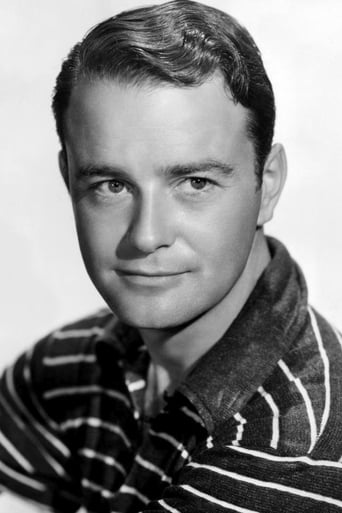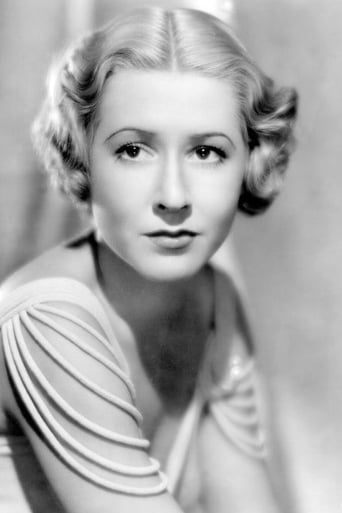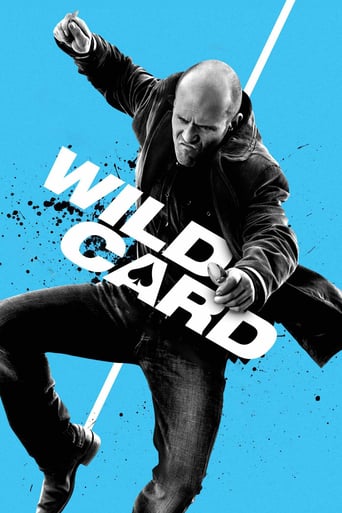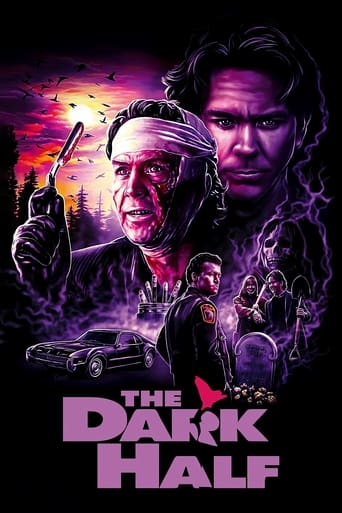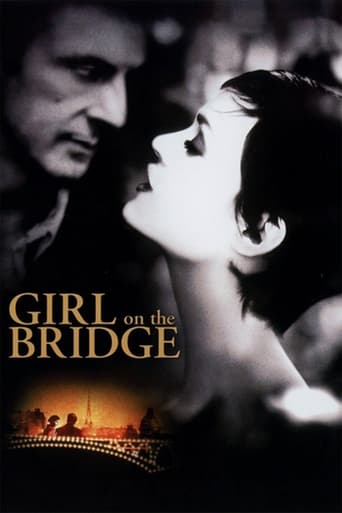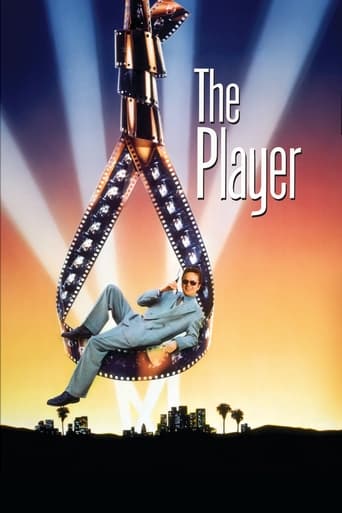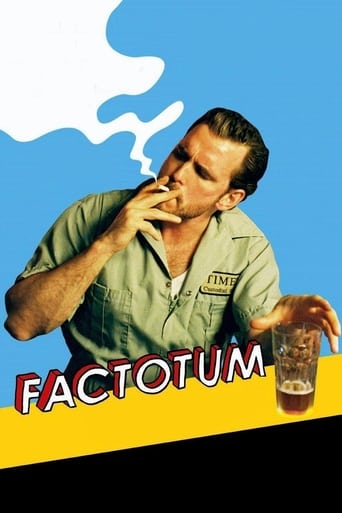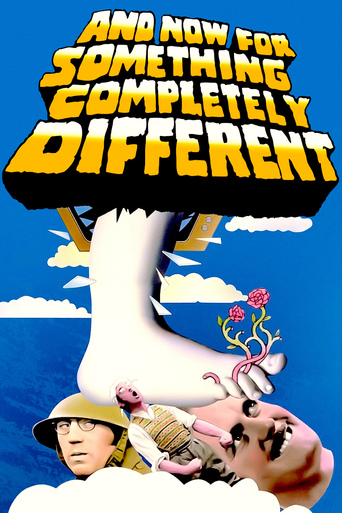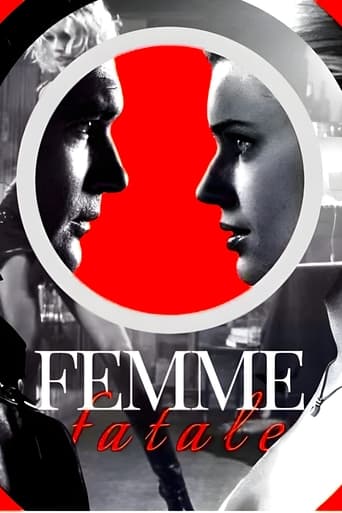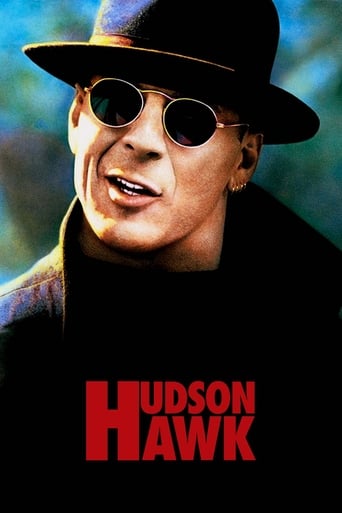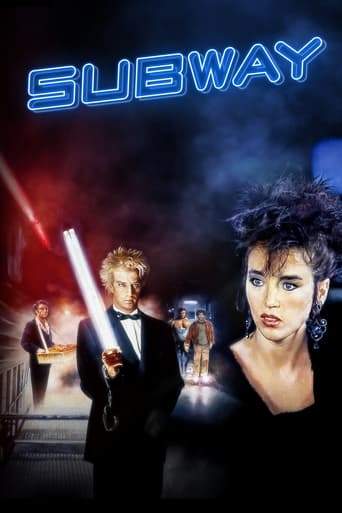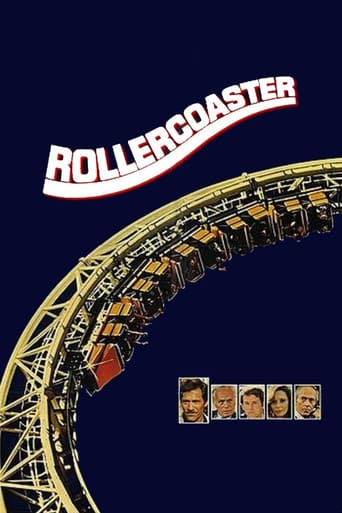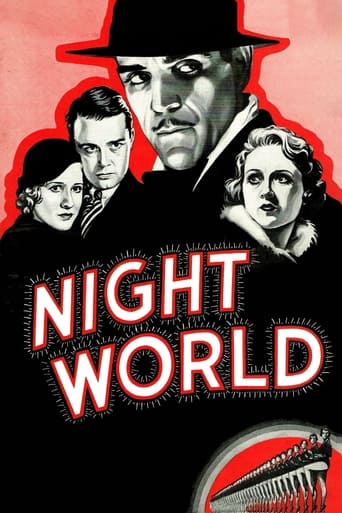
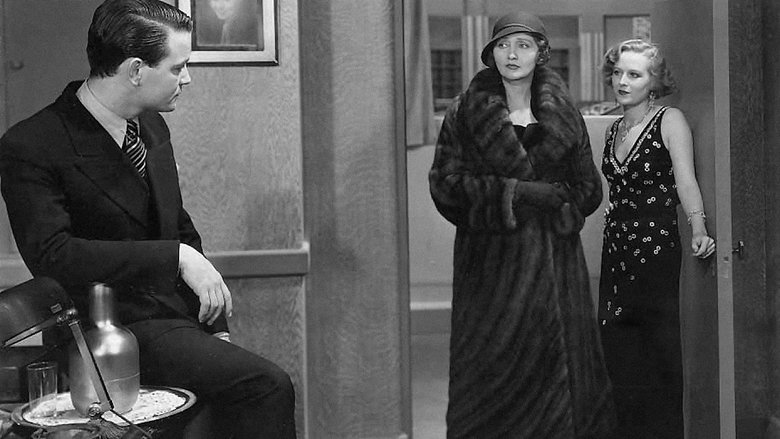
Night World (1932)
"Happy" MacDonald and his unfaithful wife own a Prohibition era night club. On this eventful night, he is threatened by bootleggers, and the club's star dancer falls in love with a young socialite who drinks to forget a personal tragedy, among other incidents.
Watch Trailer
Cast
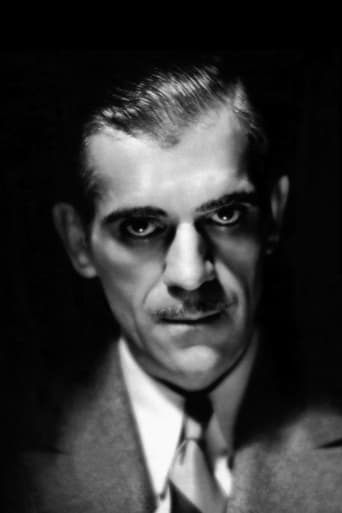


Similar titles
Reviews
You won't be disappointed!
To me, this movie is perfection.
Powerful
A great movie, one of the best of this year. There was a bit of confusion at one point in the plot, but nothing serious.
Deliciously seedy, this hour long pre- code drama with music is a gem of writing, photography, prohibition era violence, slang and tough luck. It's filled with a vision of Times Square as it once was: delightfully seedy in that Damon Runyon way where guys and dolls traveled along the big street to forget their woes in alcohol soaked nightspots like this, rub shoulders with the rich, the poor, the notorious and the desperate. This takes several of the songs later used in "42nd Street" and the "Gold Diggers" films and gives a dramatic interpretation of what they were all about. A Busby Berkley choreographed musical number, "Who's your little who?" Features chorus girls gossiping while showing more than just a lot of leg, dealing with various types of customers, and introducing the film's troubled hero, Lew Ayres, and later introducing him to chorus girl Mae Clarke. Clarence Muse gets some of the best moments as the wise doorman, a rare opportunity to see a black character treated with respect, often smarter than the wealthy patrons and hard boiled gangsters and chorus girls.Then there are Boris Karloff and George Raft, co-stars in the same year's "Scarface", cast in the gangster parts, providing the crime element of the story. Future gossip legend Hedda Hooper is prevalent among the supporting cast as Ayres' husband killing mother This is a film students of the prohibition era should study, because it remains as fresh as it was 85 years ago. I'm surprise that this film didn't usher in the code era before 1932, although I'm glad they held out for a few more years.
The opening montage of this delirious slice of pre-Code life amounts virtually to a declaration of intent, as various New Yorkers hit the town in pursuit of sex, booze and violence. You can practically hear the scratch of pencils from the bluestockings in the audience whose increasingly persistent calls to put a stop to the depiction of just this sort of depravity would soon, alas, be calling the shots in Hollywood. In just 58 minutes, 'Night World' depicts illegal booze ("they can make it faster than you can drink it"), homosexuality (in the flouncing form of "MISTER Baby", played by a very young Byron Foulger before he grew his moustache) and adultery as facts of life; and comes dangerously close to condoning the latter in the scene in which Hedda Hopper appears as Lew Ayres' ghastly mother who shot his father for an improbably innocent dalliance with another woman. (It also takes a rather callously casual view of violent death when the bullets start seriously flying in the film's finale).A couple of previous reviewers have compared 'Night World' to a low rent 'Grand Hotel'; with Merritt Gerstad's extraordinarily mobile camera weaving it's way throughout the joint picking up one set of characters and then another rather as Robert Altman would later do. Presiding over 'Happy's Place' is a tall, lisping, English-accented proprietor called "Happy" MacDonald, played by - of all people - a third-billed and fascinatingly miscast Boris Karloff. The women all look magnificent - all that bobbed hair and bare shoulders! - and a sweet blonde Mae Clarke is permitted a sunnier characterisation than we are accustomed to seeing her get a chance to play. It's a blast to see her actually dancing in the lineup on the floor show (with appropriately lascivious choreography courtesy of Busby Berkeley himself)! The name of the prolific Hobart Henley often crops up in filmographies from the early thirties, but after 'Night World' he only directed one more film. On the strength of this I'd sure like to see some of his others.
....just what a true pre-coder should be like!!! The opening shots instantly introduce you to the world of vice - "pick-ups" discreetly putting on their stockings while men lie, intoxicated, on the bed, bootleg hooch flowing freely and gangland shootings - just another night in the city.This was the last of 5 movies Mae Clarke made for Universal, who used her to great advantage as the weary prostitute in "Waterloo Bridge" and the monster menaced bride in "Frankenstein" (there is even an "in joke" in "Night World" about "Frankenstein"). She had such a fresh and natural charm that hasn't dated and it has always puzzled me why she didn't go further than leads in Bs and even smaller films."Night World" is like a minor league "Grand Hotel" (it seemed every studio had one) - events taking place over 24 hours in a night club - "Happys". For a short film (only 58 minutes) this movie packs in a lot of plot. Boris Karloff, despite having an extremely long career, seemed to be given more diverse roles at the start of his career. He plays "Happy" MacDonald, the proprietor of "Happy's Club" which as the movie progresses is anything but. He isn't very "happy" himself - he is tough on his staff but is being made a fool of by his faithless wife (very sultry Dorothy Reiver) and Klauss (Russell Hopton), his right hand man. Michael Rand (Lew Ayres) is a dissipated young millionaire who wanders drunkenly into the night club. His parents were involved in a sensational murder and he is slowly drinking himself to death to try to forget. His mother (Hedda Hopper) has been acquitted of the murder of his father, but Edith Blair (Dorothy Peterson) sees Michael at the club and gives him a motherly heart to heart talk about the way his mother really treated his father. Lew Ayres moment comes in a showdown with his mother, when he realises just how vicious her feelings are toward him and his father. On hand to administer sympathy and advice ("I'm trying to live long enough so I can see good liquor some day" she replies when Michael offers her a drink) is Mae Clarke (with a lovely fluffy perm) as Ruth Taylor, a young up and coming chorus girl ("You're in front of her - by about 10 years" says ungallant Ed Powell (George Raft) to another older chorus girl on why he prefers Ruth). Ed is too tough for Ruth and she proves her loyalty to Michael when a fight erupts. When the next day dawns, several people are dead and Ruth and Michael are on their way to a hopeful future.Like Clarke, Lew Ayres, also under contract at Universal, made the most of whatever part he was given but the studio couldn't give him the boost that guaranteed him permanent stardom - it was up to MGM and it's Doctor Kildare series to do that. There was no doubt that George Raft would be a star - his part was only that of a thug but his impact was immediate and memorable. Another actor you remembered was Clarence Muse as the philosophizing doorman.Some funny quotes - "I'm from Syracuse - Was your mother there at the time" - that was from a (to me) particularly racy scene played out in the Gentleman's toilet between a drunken patron and an obviously (it was from the early thirties) gay man who seemed determined to be picked up. "Will you do me a favour - No, why should I drop dead"!! - sweet talk on the dance floor. Busby Berkeley was the choreographer on the very cheeky "Who's Your Little Who-Zit" - his overhead shots of chorus cuties shows why he was out on his own.Highly, Highly Recommended.
Fun, saucy, fast-moving and short, Night World is a neat little movie from the early thirties, before Prohibition was repealed, when Hoover was still in the White House; and with a Depression still new there was yet a Gatsby mood in the cities. The credits of this movie are unusual. Busby Berkeley did the choreography. Alfred Newman composed what music there is. The cast is oddball for any sort of film, but especially peculiar for this kind: Lew Ayres, Mae Clarke, Boris Karloff, Hedda Hopper, George Raft and Jack La Rue. Director Hobart Henley handles his material extremely well, and gives it pace and energy. There is joy, sadness, corruption, disillusionment and heartbreak in the movie, and the ending is bittersweet but not downbeat.


